detail profile brigitte helm
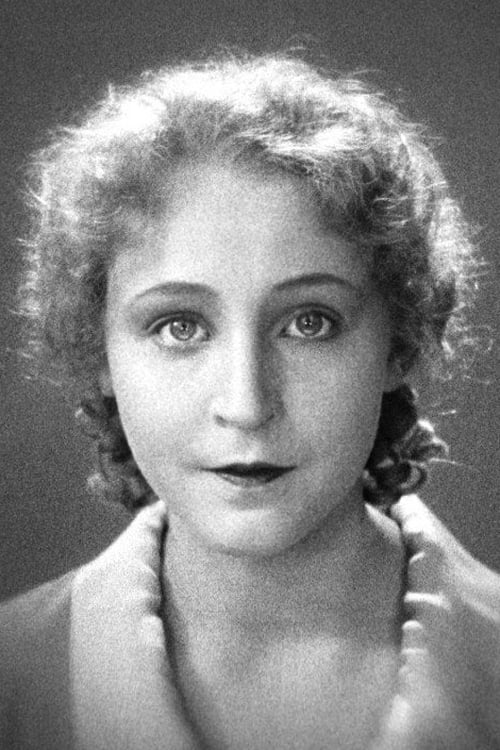
Brigitte Helm
Brigitte Eva Gisela Schittenhelm
atau dikenal sebagai
Riwayat Hidup
Brigitte Helm (17 March 1906 – 11 June 1996) was a German actress, best-remembered for her dual role as Maria and her double, the Maschinenmensch, in Fritz Lang's 1927 silent film Metropolis.
Description above from the Wikipedia article Brigitte Helm, licensed under CC-BY-SA, full list of contributors on Wikipedia.
Info Pribadi
Peran Yang Di Mainkan Brigitte Helm
 Film journalist and critic Rdiger Suchsland...
Film journalist and critic Rdiger Suchsland...Hitler's Hollywood 2017
Film journalist and critic Rüdiger Suchsland examines German cinema from 1933, when the Nazis came into power, until 1945, when the Third Reich collapsed. (A sequel to From Caligari to Hitler, 2015.)
 In 1984 Academy Award winning composer Giorgio...
In 1984 Academy Award winning composer Giorgio...Giorgio Moroder's Metropolis 1984
In 1984, Academy Award winning composer Giorgio Moroder introduced Fritz Lang’s science fiction epic Metropolis to a new generation of filmgoers. Working in collaboration with film archivists globally, Moroder supervised a special reconstruction, with color tinting, fewer intertitles and newly restored footage. A pioneer in the field of digital music, Moroder backed this special edition with a throbbing new score, punctuated with pop songs from some of the biggest stars of the early MTV era: Freddie Mercury, Pat Benatar, Adam Ant, Bonnie Tyler, Loverboy and others.
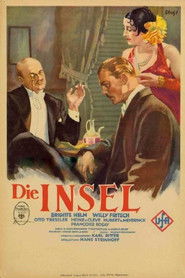 A case of espionage in high...
A case of espionage in high...Die Insel 1934
A case of espionage in high society: To save the reputation of his county, a diplomat voluntarily takes his own life.
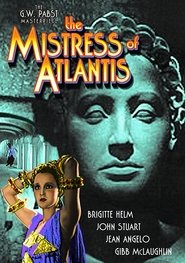 In this mythical fantasy the evil...
In this mythical fantasy the evil...The Mistress of Atlantis 1932
In this mythical fantasy, the evil queen of Atlantis lives in a magnificent palace, the halls of which are filled with the mummified remains of former lovers.
 Two young officers SaintAvit and Morhange...
Two young officers SaintAvit and Morhange...Queen of Atlantis 1932
Two young officers, Saint-Avit and Morhange, get lost in the desert and find themselves prisoners of the beautiful Antinéa, queen of the city of Atlantis. Saint-Avit, blinded by his love for her, obeys her when she orders him to kill his comrade... With L’Atlantide, Pabst offers a psychoanalytic reading of Benoit’s novel, with a dominant female figure who enslaves her lovers before destroying them. The film’s fantasy dimension is disturbing, L’Atlantide bathes in a humid nightmare atmosphere, between the desperate search for a missing friend and the apparitions of an underworld lost in the desert. A long, discursive flashback suggests the Parisian origins of Antinéa, born from the marriage between Clémentine, a pretty, light-thighed French Cancan dancer, and an Arab prince seduced during a theatrical performance. But again, it's impossible to know whether these are the ramblings of an old alcoholic or the strange truth.
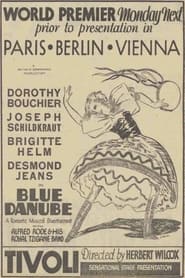 In a Hungarian gypsy encampment carefree...
In a Hungarian gypsy encampment carefree...The Blue Danube 1932
In a Hungarian gypsy encampment, carefree Sandor lives with his beautiful sweetheart Yutka. Into their lives rides a blonde countess, with whom Sandor becomes infatuated. Yutka soon flees from her faithless lover. Sandor roams the country, searching for his lost love, but finds her too late. she now wears furs and has her own aristocratic love. Sandor returns heartbroken to his Romany encampment.
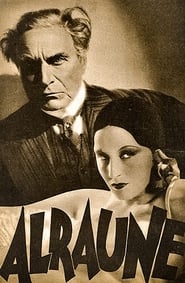 A scientist Professor Jakob ten Brinken...
A scientist Professor Jakob ten Brinken...Alraune 1930
A scientist, Professor Jakob ten Brinken, interested in the laws of heredity, impregnates a prostitute in a laboratory with the semen of a hanged murderer. The prostitute conceives a female child who has no concept of love, whom the professor adopts. The girl, Alraune, suffers from obsessive sexuality and perverse relationships throughout her life. She learns of her unnatural origins and she avenges herself against the professor.
 This silentscreen classic like many others...
This silentscreen classic like many others...The Wonderful Lies of Nina Petrovna 1929
This silent-screen classic, like many others produced near the end of the silent era, was both a theatrical extravaganza boasting an original orchestral score and an item which languished in obscurity for many years. When Carlo Piccardi took what was left of the score by Maurice Jaubert and re-created it, the existing footage was restored and paired with a new orchestral performance which was shown in Paris in 1988. The film's story concerns the travails of a woman who has been living quite comfortably as the mistress of a colonel in the Tsar's army in Russia. However, she eventually encounters a penniless young lieutenant and falls madly in love with him, as he does with her. Despite her best intentions of remaining with the colonel, and his intention to avoid trouble with his fellow soldiers, they cannot forswear this relationship, and tragedy is the inevitable result. The title refers to a moving incident in the story, and translates as "the wonderful lie of Nina Petrovna."
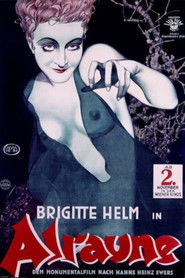 Hanns Heinz Ewers grim sciencefiction novel...
Hanns Heinz Ewers grim sciencefiction novel...A Daughter Of Destiny 1928
Hanns Heinz Ewers' grim science-fiction novel Alraune has already been filmed twice when this version was assembled in 1928. In another of his "mad doctor" roles, Paul Wegener plays Professor Brinken, sociopathic scientist who combines the genes of an executed murderer with those of a prostitute. The result is a beautiful young woman named Alraune (Brigitte Helm), who is incapable of feeling any real emotions -- least of all guilt or regret. Upon attaining adulthood, Alraune sets about to seduce and destroy every male who crosses her path. Ultimately, Professor Brinken is hoist on his own petard when he falls hopelessly in love with Alraune himself. Alraune was remade in 1930, with Brigitte Helm repeating her role, and again in 1951, with Hildegarde Knef as the "heroine" and Erich von Stroheim as her misguided mentor.
 In the Crimea the Reds and...
In the Crimea the Reds and...The Love of Jeanne Ney 1927
In the Crimea, the Reds and the Whites aren't done fighting, and Jeanne discovers that the man she loves is a Bolshevik (when he kills her father). Penniless, she returns to Paris where she works for her uncle. Soon after, her lover Andreas is in France to organize the sailors in Toulon. So also is a thief, traitor, and libertine, Khalibiev, who wants to seduce Jeanne. His schemes, Jeanne and Andreas's naivete, and a lost diamond bring the lovers to the brink of tragedy.
 In a futuristic city sharply divided...
In a futuristic city sharply divided...Metropolis 1927
In a futuristic city sharply divided between the rich and the poor, the son of the city's mastermind meets a prophet who predicts the coming of a savior to mediate their differences.
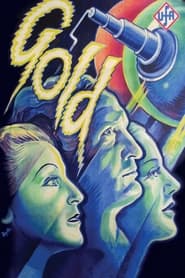 Using an atomic reactor two scientists...
Using an atomic reactor two scientists...
 A young woman born illegitimately comes...
A young woman born illegitimately comes...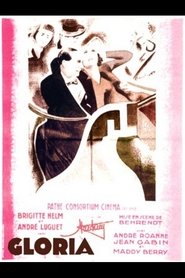
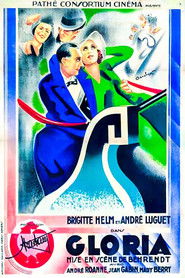 This is the German version of...
This is the German version of... During WWI a German agent receives...
During WWI a German agent receives...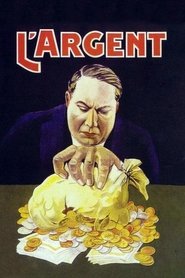 Adapted from the novel LArgent by...
Adapted from the novel LArgent by... Neglected by her husband an ambitious...
Neglected by her husband an ambitious...